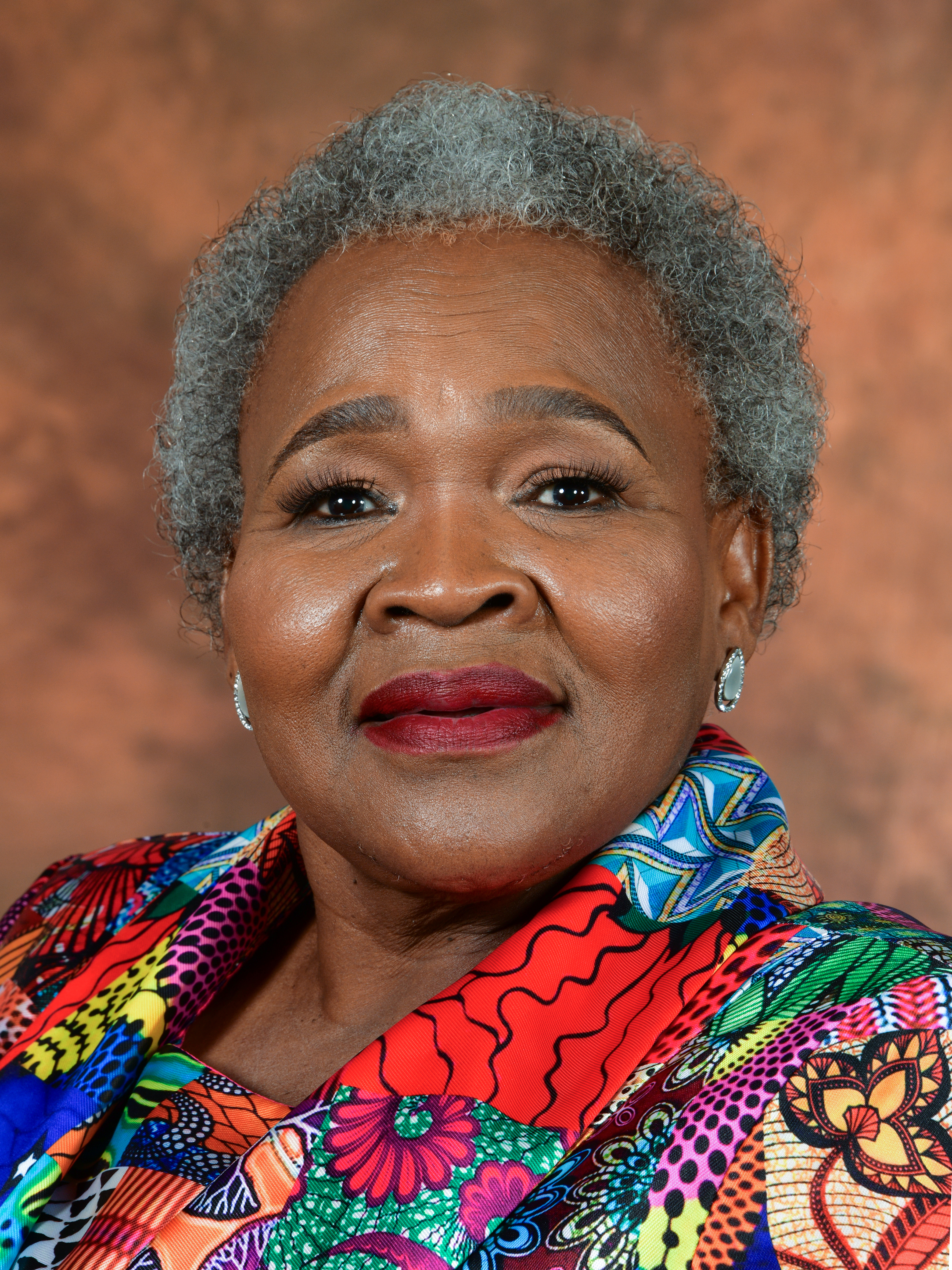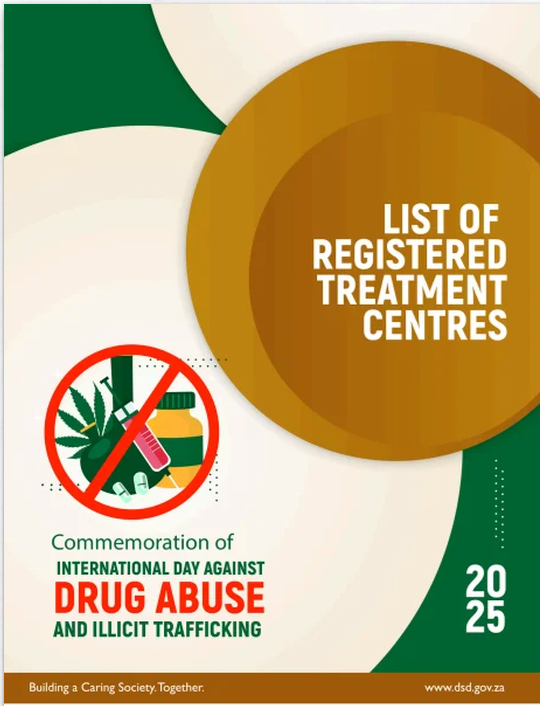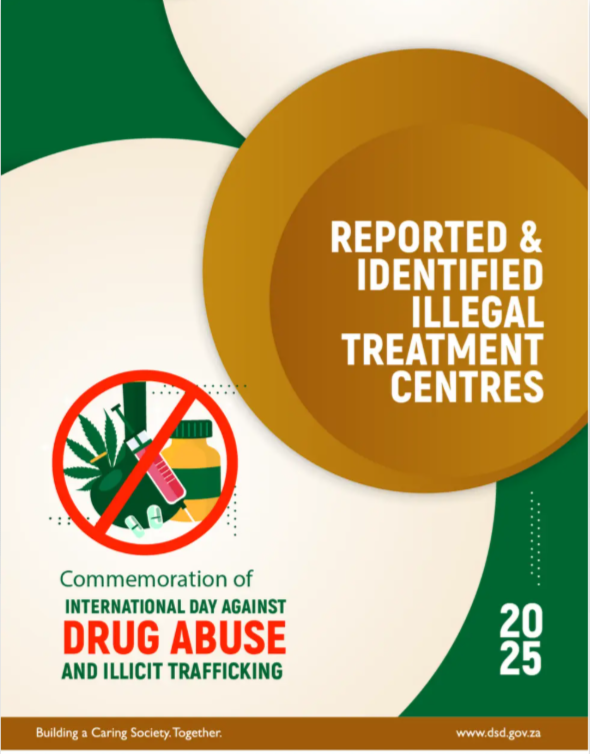Department of Social Development Leaders


Ten Point Plan
The Strategic Plan of the Department is informed by the Ten Point Plan, which represents the priorities to be addressed by the social development sector during the period 2000 to 2005. These priorities are the outcome of an intensive process of consultation with a range of stakeholders in October 1999 and were launched by the Minister of Social Development in January 2000.
- Rebuilding of family, community and social relations
We will restore the ethics of care and human development in all welfare programmes. This requires an urgent rebuilding of family, community and social relations in order to promote social integration. - Integrated poverty eradication strategy
We will design an integrated poverty eradication strategy that provides direct benefits to those in greatest need, especially women, youth and children in rural areas and informal settlements. - Comprehensive social security system
We will develop of a comprehensive social security system that builds on existing contributory and non-contributory schemes and prioritises the most vulnerable households - Violence against women and children, older persons and other vulnerable groups
We must respond to brutal effects of all forms of violence against women, children, older persons and other vulnerable groups, as well as design effective strategies to deal with perpetrators. - HIV/AIDS
Our programmes will include a range of services to support the community-based care and assistance for the people living with HIV/AIDS. Particular attention will be given to orphans and children infected and affected by HIV/AIDS. - Youth Development
We will develop a national strategy to reduce the number of youth in conflict with the law and promote youth development within the framework of the National Crime Prevention Strategy and in partnership with the National Youth Commission. - Accessibility of social welfare services
We will make social welfare services accessible and available to people in rural, peri-urban and informal settlements, and ensure equity in service provision. - Service's to people with disabilities
We will redesign services to people with disabilities in ways that promote their human rights and economic development. We will work with people with disabilities to ensure that their needs are met without further marginalizing them. - Commitment to co-operative governance
All our work must be based on a commitment to co-operative governance that includes working with different spheres of government and civil society. - Train, educate, re-deploy and employ a new category of workers in social development
We must train, educate, re-deploy and employ a new category of workers in social development. This includes the re-orientation of social service workers to meet the challenges of South Africa and link these to regional and global demands.
Stakeholders
Background and Discussion
Stakeholder Management and Donor Coordination Directorate is located in the Ministry under the Chief of Staff. The Donor Coordination function has been the responsibility of International Relations but has since been moved to Stakeholder Management and Donor Coordination Directorate. The Directorate has been without a Director for over a year during which time the Chief of Staff played the role of caretaker for Stakeholder Management.
Goal
The goal of the stakeholder Management and Donor Coordination Directorate is to develop, promote and maintain good relations between the Ministry and stakeholders, ensuring information sharing and stakeholder understanding of Ministerial/Departmental Programmes and Strategies; seeking Partnerships for specific programmes with key stakeholders and to liaise with donor agencies regarding funding for Ministerial projects and activities.
Stakeholder Management and Donor Coordination Strategic Objectives
- To develop, implement and evaluate a Stakeholder Management and Donor Coordination strategy that will enable an integrated, effective and efficient management of the Directorate.
- To develop and maintain good relations between the Ministry and Stakeholders
- To ensure Stakeholders understand Ministerial/Departmental programmes
- To establish and maintain partnerships between the Department and Civil Society
- To establish and maintain a database of social development stakeholders
- To respond to requests from Stakeholders of the Department
- To ensure that stakeholders receive departmental topical documents
- To develop a consolidated departmental Fundraising Strategy
- To translate stakeholder and donor interests into costed project proposals and programmes for consideration by the Minister and the Department
- To manage all stakeholder projects and related events in compliance with relevant government regulations, policies and guidelines
Functions
- Draft and execute a Stakeholder Management and Donor Coordination Strategy for the Department
- Identify and interact with key stakeholders of the Department.
- Ensure information sharing and understanding of departmental programmes and strategies
- Seek partnerships for specific programmes with key stakeholders e g NGOs, CBOs, FBOs, Women’s Groups, Business, Labour, Traditional Leaders, and Youth formations
- Develop, update and maintain a Ministerial Stakeholder and Donor Coordination databases
- Respond to requests from stakeholders through liaising with line function managers in the department
- Ensure and monitor timeous responses
- Ensure that stakeholders receive relevant departmental documents such as Annual Reports and new policy documents
- Obtain/secure funding to supports departmental projects
- Budget for the costed projects
- Development of projects to be guided by approved Government regulations, policies and guidelines
Batho Pele
Batho Pele Means "People First"
The Batho Pele White Paper is the national governments' White Paper for Transforming Public Service Delivery. It is all about giving good customer service to the users of government services.
All public servants are required to practice Batho Pele.
There are 8 principles or guidelines for Batho Pele in the White Paper. They are:
-
Consultation
-
Service Standards
-
Courtesy
-
Access
-
Information
-
Openness and Transparency
-
Dealing with complaints
-
Giving Best Value
In KwaZulu-Natal we have another two principles. They are:
-
Encouraging Innovation and Rewarding Excellence
-
Customer Impact
Batho Pele -"People First" was conceived with the intention of transforming service delivery in the public sector. Good service delivery leads to happy customers and employee satisfaction for a job well done.
Batho Pele was founded on 8 principles, but since the inception of the Awards, two more principles have been added.
Consultation
This is about asking our customers what they want and finding out how we can best meet their needs. This may be done by questionnaires, or by talking to customers. It's important to consult as many of our customers as we can and to use the information we receive to help improve our service to them. It's important to report back to customers so they know what to expect, and to our staff so they know what is expected from us.
Service Standards
While we should continually try to improve the service we give, it's also about how well we promise to deliver our service at any time. If we already know what is important to our customers then we can set service standards which must be realistic depending on the resources we have. We should also be able to measure these standards so that everyone can see if they are being met.
Access
Access applies especially to the previously disadvantaged sectors of the community and to people with special needs. These needs may include access to our department for the physically disabled, or having services which are too far away for people to visit. Good staff attitudes and addressing customers in their own language makes access easier.
Courtesy
Courtesy is not only being polite to customers, but being friendly, helpful and treating everyone with dignity and respect. We should write down a code of conduct and we should train and assess our staff in customer care. Our managers should monitor the relationship between front line staff and customers and help staff to give a warm and friendly service to everyone.
Information
Information is about reaching all our customers to make sure they are well informed about the services our department provides. This may be done in a number of ways-for example through newspapers, radio, posters and leaflets. It's important to remember that different customers have different needs and they do not all speak the same language. We should disseminate a Service Commitment Charter to inform customers about the services we offer.
Openness and Transparency
This Batho Pele principle encourages our departments to be open and honest about every aspect of our work. We should publish an annual report to tell citizens how our resources were used, how much everything cost, including costs for staff, equipment delivery, services and so on. It should also include how well our department performed-did we keep our promises-deliver on time and so on. If we did not meet our standards, we should list the reasons and find ways to improve our service. We should hold "open days," and invite members of the public to show them how we run our business.
Redress
Redress is making it easy for people to tell us they are unhappy with our service. We should train staff to deal with complaints in a friendly, helpful manner. We should apologise and put the problem right as quickly as possible. We should tell Customers how and where to complain and we should keep a record of all complaints and how we dealt with them. We should understand that complaints can help us to improve our service as they tell us what our customers want.
Best Value
This principle includes giving our customers the best service we can using all our resources. It also means eliminating waste, fraud and corruption and finding new ways of improving services at little or no cost. This might include us forming partnerships with other service providers and the community. If we work efficiently and maximise our skills we will add value and produce service excellence to give our customers the best value for their money. Innovation and Reward This Batho Pele principle was an addition to the original list as a result of many of the participating departments innovative and creative ways of "doing things better." Innovation can be new ways of providing better service, cutting costs, improving conditions, streamlining and generally making changes which tie in with the spirit of Batho Pele. It is also about rewarding the staff who "go the extra mile" in making it all happen.
Customer Impact
This is a new principle which has been added in for 2002. It focuses on the changes and consequences that result from our implementing Batho Pele in our work. It was noticed that some departments had concentrated more on some of the principles and had forgotten others. Impact means looking at the benefits which we have provided for our customers both internal and external -it's how the nine principles link together to show how we have improved our overall service delivery.
LEGISLATIVE MANDATE
The Department of Social Development derives its core mandate from the Constitution of the Republic of South Africa:
- Section 27 (1) (c) of the Constitution provides for the right of access to appropriate social assistance to those unable support themselves and their dependants.
- In addition, Section 28 (1) of the Constitution sets out the rights of children with regard to appropriate care (basic nutrition, shelter, health care services and social services) and detention.
- Schedule 4 of the Constitution further identifies welfare services, population development and disaster management as functional areas of concurrent national and provincial legislative competence.
The following existing laws or parts thereof, can be regarded as constituting the legislative mandate of the Department of Social Development in South Africa:
All the abovementioned laws, excluding the Welfare Laws Amendment Act, 1997 and the Advisory Board on Social Development Act, 2001 have been amended a number of times since April 1994.
Aged Persons Act, 1967
This Act provides for the protection and welfare of certain aged and debilitated persons, for the care of their interests, for the establishment and registration of certain institutions and for the accommodation and care of such persons in such institutions. The Act was amended a number of times before April 1994. Further amendments were made in November 1994 in order to, amongst others, repeal certain discriminatory provisions and in November 1998 in order to provide for the establishment of management committees for homes for the aged, to require reporting on the abuse of aged persons and to regulate the prevention of the abuse of aged persons. The Department is currently drafting a Bill on the status of older persons.
Fund-raising Act, 1978
The Fund-raising Act, 1978 that provided for control of the collection of contributions from the public and for the establishment of various relief funds was, except for the relief fund chapter thereof, repealed in 1997 by the Non-profit Organisations Act, 1997. The Department is in the process of amending the remaining part of the Act.
Social Service Professions Act, 1978
This Act, formerly known as the Social Work Act, provides for the establishment of the South Africa Council for Social Work and defines its powers and functions. The Act was amended on a number of occasions – in 1995 it provided for the establishment of the South African Interim Council for Social Work and for the rationalisation of certain laws relating to social workers that remained in force in the various areas of the national territory of the Republic. The Act was also amended in 1996 in order to make the South African Interim Council for Social Work more representative of the people of the country. The 1998 amendment established the South African Council for Social Service Professions and professional boards for social service professions.
Child Care Act, 1983
The Child Care Act, 1983 which provides for the establishment of children’s courts and the appointment of commissioners of child welfare, for the protection and welfare of certain children, for the adoption of children and for the establishment of certain institutions for the reception of children and for the treatment of children after such reception, was amended in 1996 to provide for legal representation for children and for the registration of shelters. The 1998 amendment provided for the rights of certain natural fathers where the adoption of their children born out of wedlock has been proposed and for certain notice to be given. The 1999 amendment provided for the establishment of secure care facilities and for the prohibition against the commercial sexual exploitation of children. The Department and the South African Law Commission is currently preparing new comprehensive children’s legislation.
Probation Service Act, 1991
This Act provides for the establishment and implementation of programmes aimed at the combating of crime and for the rendering of assistance to and treatment of certain persons involved in crime. A new amendment Bill has been prepared, which will be introduced in Parliament during April 2002.
Prevention and Treatment of Drug Dependency Act, 1992
This Act provides for the establishment of a Central Drug Authority, the establishment of programmes for the prevention and treatment of drug dependency, the establishment of treatment centres and hostels, the registration of institutions as treatment centres and hostels and the committal of certain persons to and their detention, treatment and training in such treatment centres or registered treatment centres. The Act was amended in 1996 to extend the application of the Act to the whole of the national territory of the Republic and in 1999 to establish the Central Drug Authority.
Social Assistance Act, 1992 and Welfare Laws Amendment Act, 1997
The Social Assistance Act, 1992 provides for the rendering of social assistance to persons, national councils and welfare organisations. The Act was amended in 1994 to further regulate the making of grants and financial awards to certain persons and bodies. In 1997 the Welfare Laws Amendment Act, 1997 amended the Social Assistance Act, 1992 in order to provide for uniformity of, equality of access to, and effective regulation, of social assistance throughout the Republic, to introduce the child-support grant, to do away with capitation grants, to abolish maintenance grants subject to the phasing out of existing maintenance grants over a period not exceeding three years, to provide for the delegation of certain powers, and to extend the application of the provisions of the Act to all areas in the Republic.
Non-profit Organisations Act, 1997
This Act repealed the Fund-raising Act, 1997, excluding the chapter, which deals with the relief funds, and provided for an environment in which nonprofit organisations can flourish. The Act also established an administrative and regulatory framework within which nonprofit organisations can conduct their affairs. The Act was amended in 2000 to effect certain textual alterations.
Advisory Board on Social Development Act, 2001
The Act provides for a national advisory structure in the social development sector with the aim of building and consolidating partnership between government and civil society and for that purpose, to establish a body to be known as the Advisory Board on Social Development.
White Paper for Social Welfare (1997)
The White Paper sets out the principles, guidelines, proposed policies and programmes for developmental social welfare in South Africa. As the primary policy document, the White Paper serves as the foundation for social welfare in the post 1994 era.
White Paper Population Policy for South Africa (1998)
The White Paper aims to promote the integration of population issues in development planning with the view to achieving sustainable human development. The Department of Social Development is responsible for monitoring population trends and for supporting national, provincial and local spheres of government through capacity building, research and information dissemination on population issues. Issued by Department of Social Development.
Core Functions
The Department has the following primary core functions:
- Management and oversight over social security, encompassing social assistance and social insurance policies that aim to prevent and alleviate poverty in the event of life cycle risks such as loss of income due to unemployment, disability, old age or death occurring.
- Developmental social welfare services that provide support to reduce poverty, vulnerability and the impact of HIV and AIDS through sustainable development programmes in partnership with implementing agents such as State-funded institutions, Non-Governmental Organisations (NGOs), Community-Based Organisations (CBOs) and Faith-Based Organisations (FBOs).






 0
0  1
1  2
2 


